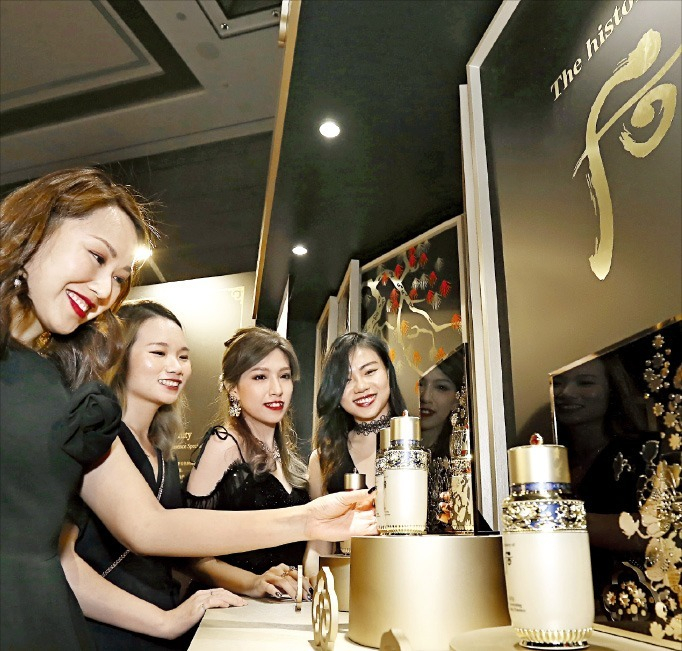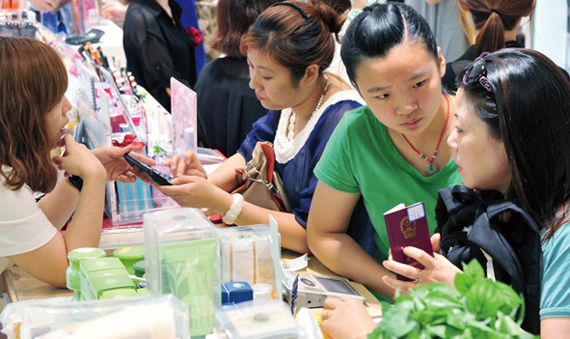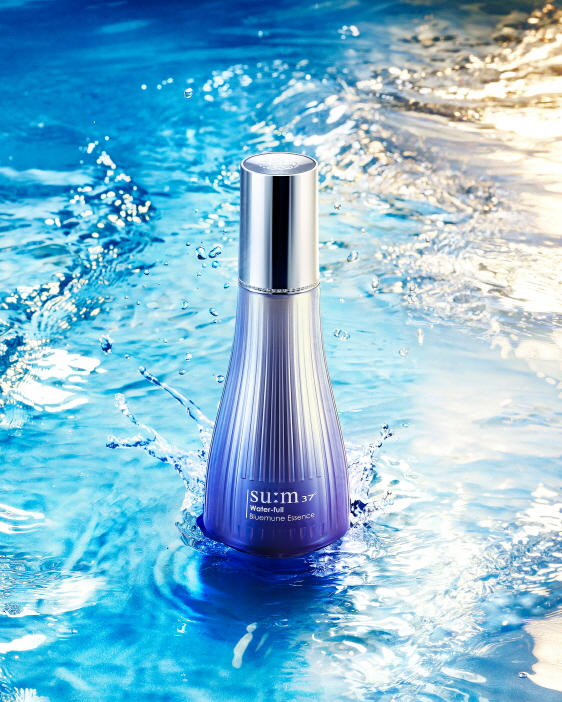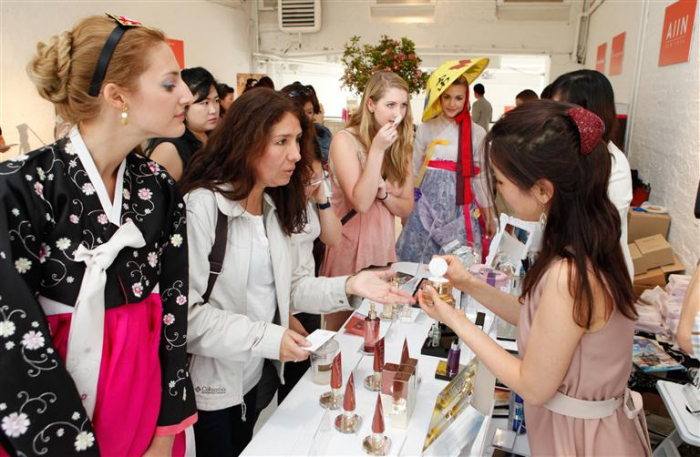Beauty & Cosmetics
LG Household to lower reliance on Chinese market as shares slump
Following its acquisitions of a series of global brands to diversify its business portfolio, the company now looks to the US for growth
By Mar 25, 2022 (Gmt+09:00)
4
Min read
Most Read
LG Chem to sell water filter business to Glenwood PE for $692 million


Kyobo Life poised to buy Japan’s SBI Group-owned savings bank


KT&G eyes overseas M&A after rejecting activist fund's offer


StockX in merger talks with Naver’s online reseller Kream


Mirae Asset to be named Korea Post’s core real estate fund operator



LG Household & Health Care Ltd. was one of the most coveted shares on the Korean bouse in the past couple of years as the company basked in the global boom of Korean cosmetics, collectively known as the K-beauty.
Driven by strong demand from China, which has the world’s largest consumer base, LG Household’s shares rose as high as 1,784,000 won ($1,463) in July last year.
As of Friday, the stock has fallen 51.4% from the July high to close at 867,000 won on the Kospi market.
Analysts have warned LG’s heavy reliance on the Chinese market could backfire if Chinese consumers turn their back on the Korean company or bilateral relations between the two neighbors turn sour.
The company had posted record earnings quarter after quarter up until the first half of last year, but things began to change from the second half, as the Chinese market started to feel the impact of the COVID-19 pandemic.
Coupled with the slowdown in China, Chinese consumers’ increasing favor of locally produced beauty products has also hit LG Household hard.
According to global market researcher Euromonitor, no Korean beauty brand was made to the list of the top 10 basic cosmetics products in China last year.

CHINESE FAVOR HOME-GROWN BRANDS
Millennial and Gen Z consumers in China have also become to favor home-grown brands such as Florasis, a Hangzhou-based firm known for its traditional Chinese aesthetics.
LG and its crosstown rivals, including Amorepacific Corp., were already reeling from China's ban on the imports of South Korean products, after Seoul agreed with Washington to build and install a missile shield system known as Terminal High Altitude Area Defense (THAAD) in South Korea.
One of the key sales channels for Chinese consumers is through the Chinese individual resellers, or peddlers, who purchase popular Korean cosmetics from department stores and duty-free shops in Korea and carry them back to China for resale.
As the popularity of K-beauty products in China cooled, Chinese retailers began to demand LG Household drastically cut the prices of its products – a request that the Korean company rejected, citing the possibility of its brand image worsening.
In the fourth quarter of last year, Chinese retailers demanded a whopping 40% discount for LG products from duty-free shops, according to industry watchers.
As LG rejected such requests, Chinese peddlers cut their purchases, resulting in a sharp drop in LG’s sales, which in turn caused its shares to fall significantly on the stock market.

TURN FOCUS TOWARD US MARKET
LG Household said it is diversifying its business portfolio and adjusting its business focus away from China in favor of other markets, including the US.
LG’s beauty products under its flagship brand Whoo posted 2.92 trillion won in global sales in 2021, of which China accounted for almost half. The brand took 75% of its total China sales.
“With dwindling consumption in the Chinese market, LG Household’s earnings in the first quarter will come out lower than the market consensus,” said KB Securities analyst Park Shin-ae.
As part of its efforts to diversify its portfolio, the company has been acquiring new brands over the past few years.
In May of last year, it finalized a deal with global pharmaceutical company GlaxoSmithKline to acquire the business rights for Physiogel in the Asian and North American markets for 125 million pounds.
Physiogel is a derma cosmetics and personal care brand that started in Germany and sells in Asia, Europe and South America. It enjoys great popularity in Korea in particular.

Earlier last year, LG also acquired the British premium toothpaste brand Euthymol and later purchased the US vegan hair care brand Arctic Fox, which is popular among millennial and Gen Z consumers.
With the acquisitions, LG Household aims to enhance its presence in the US market.
Last month, the company joined hands with Farouk Systems Inc., a Houston-based company of hairdressers for hairdressers, known for manufacturing high-quality professional hair care products under the industry-leading brands CHI, BioSilk and SunGlitz.
The two companies jointly developed LG CHI Color Master, a high-tech digital color customization system that creates precise color for hair.
“LG Household’s share price fall has been excessive, given its fundamentals. Its shares will rebound if its market diversification strategy proves successful,” said Korea Investment & Securities analyst Kim Myung-joo.
Write to Sul-Li Jun at sljun@hankyung.com
In-Soo Nam edited this article.
More to Read
-
 Advertising & MarketingCosmetics brands shift to video influencers from celebrities
Advertising & MarketingCosmetics brands shift to video influencers from celebritiesDec 03, 2021 (Gmt+09:00)
3 Min read
Comment 0
LOG IN


